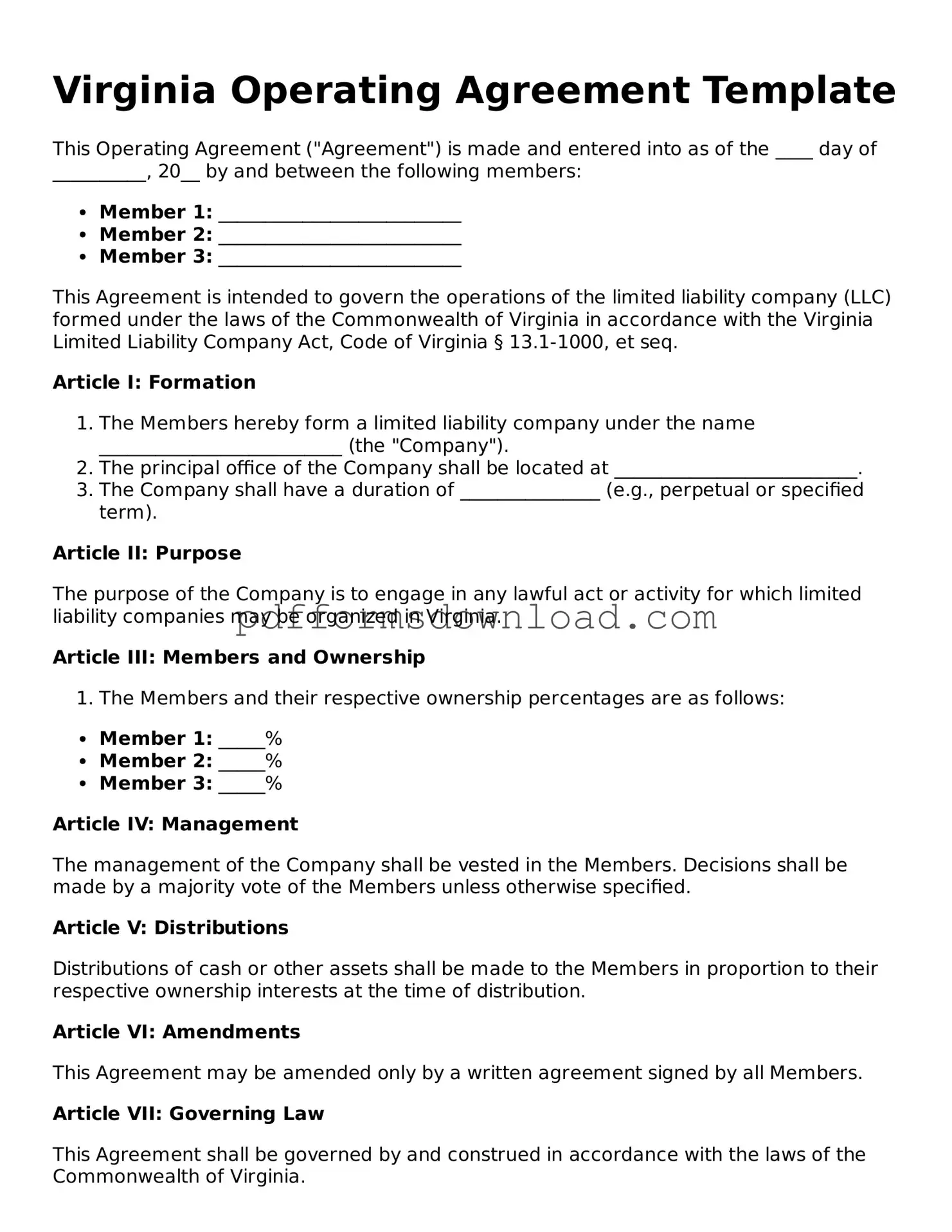Printable Virginia Operating Agreement Form
The Virginia Operating Agreement form is a crucial document for Limited Liability Companies (LLCs) in Virginia, outlining the management structure and operational guidelines of the business. This agreement serves as a foundational blueprint, detailing the rights and responsibilities of members while ensuring compliance with state regulations. Understanding its importance can help safeguard your business interests and facilitate smooth operations.
Ready to create your Virginia Operating Agreement? Fill out the form by clicking the button below.
Make This Document Now

Printable Virginia Operating Agreement Form
Make This Document Now

Make This Document Now
or
Free PDF File
Your form is almost ready
Complete your Operating Agreement online — edit, save, and download easily.